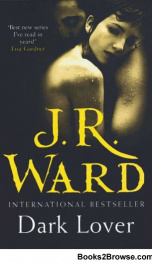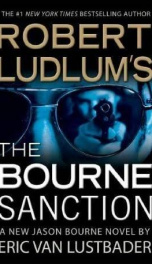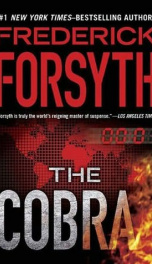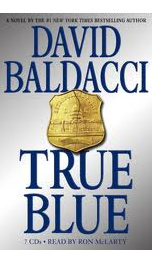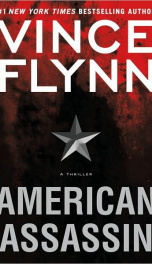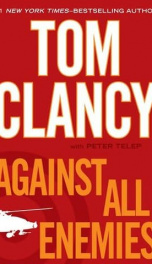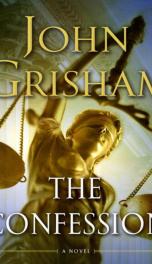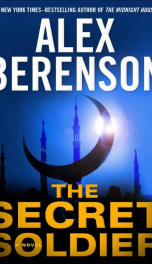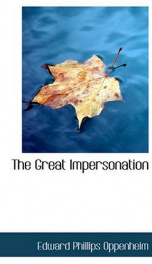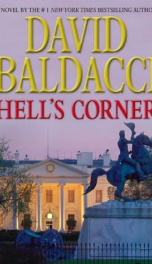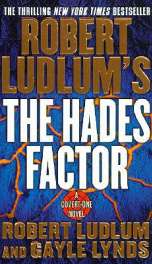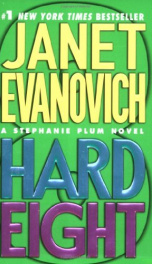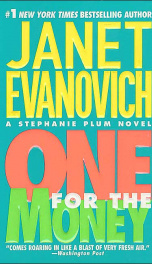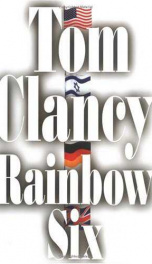Westlake Donald E.

Donald Edwin Westlake (12 July 1933 – 31 December 2008) was an American writer, with over a hundred novels and non-fiction books to his credit. He specialized in crime fiction, especially comic capers with an occasional foray into science fiction. He was a three-time Edgar Award winner, one of only two writers (the other is Joe Gores) to win Edgars in three different categories (1968, Best Novel, God Save the Mark; 1990, Best Short Story, "Too Many Crooks"; 1991, Best Motion Picture Screenplay, The Grifters). In 1993, the Mystery Writers of America named Westlake a Grand Master, the highest honor bestowed by the society. Westlake was born in Brooklyn, New York, and attended Champlain College and Harpur College in Binghamton, New York. He spent two years in the United States Air Force. He was married to Abigail Westlake (also known as Abby Adams Westlake and Abby Adams), a writer of nonfiction (her two published books are An Uncommon Scold and The Gardener's Gripe Book). The couple lived in upstate New York. Abby Westlake is a well-regarded gardener, and the Westlake garden has frequently been opened for public viewing in the summer.[1] Westlake died of a heart attack on December 31, 2008 while on the way to a New Year's Eve dinner, while he and his wife were on vacation in Mexico.[2] In addition to writing consistently under his own name, Westlake published under several pseudonyms[3]. In the order they debuted: Donald Westlake was known for the great ingenuity of his plots and the audacity of his gimmicks. His writing and dialogue were lively. His main characters were fully rounded, believable, and clever. Westlake's most famous characters include the hard-boiled criminal Parker (appearing in fiction under the Richard Stark pseudonym) and Parker's comic flip-side John Dortmunder, the hard-luck criminal genius who originally began as Parker getting caught in a comic situation in the 1970 novel The Hot Rock. Most of Donald Westlake's novels were set in New York City. In each of the Dortmunder novels, there is typically a detailed shortcut somewhere through the city. He wrote just one non-fiction book, [3] Under an English Heaven, regarding the unlikely 1967 Anguillan "revolution" Westlake was an occasional contributor to science fiction fanzines such as Xero, and used Xero as a venue for a harsh announcement that he was leaving the science fiction field.[7] Several of Westlake's novels have been made into motion pictures, including Point Blank (based on The Hunter) in 1967 with Lee Marvin as Parker (changed to Walker), The Hot Rock in 1972 with Robert Redford, Cops and Robbers in 1973, The Outfit with Robert Duvall, also in 1973, Bank Shot in 1974 with George C. Scott, The Busy Body (with an "all-star cast") in 1967, Slayground in 1983, Why Me? in 1990, Payback in 1999, the second film made from The Hunter, with Mel Gibson, and What's the Worst That Could Happen? in 2001 with Martin Lawrence. Costa-Gavras adapted The Ax for the European screen in 2005, to great critical and public acclaim. Entitled Le Couperet, the film takes place in France and Belgium rather than the novel's setting of New England. The novel Jimmy the Kid has been adapted three times: in Italy as Come ti rapisco il pupo in 1976, in the U.S. as Jimmy the Kid in 1983 starring Gary Coleman, and in Germany as Jimmy Der Kinder in 1999. The novel Two Much! has been adapted twice: in France as Le Jumeau (The Twin) in 1984, and in the U.S. as Two Much in 1995 starring Antonio Banderas and Melanie Griffith. Jean-Luc Godard's Made in USA in 1966 was an extremely loose adaptation of "The Jugger." Neither the film's producer nor Godard purchased the rights to the novel, so Westlake successfully sued to prevent the film's commercial distribution in the United States. Westlake was himself a screenwriter. His script for the 1990 film The Grifters, adapted from the novel by Jim Thompson, was nominated for an Academy Award. (Westlake the screenwriter adapted Jim Thompson's work in a straightforward manner, but Westlake the humourist played on Thompson's name later that year in the Dortmunder novel Drowned Hopes by featuring a character named "Tom Jimson" who is a criminal psychopath.) Westlake also wrote the screenplay The Stepfather (from a story by Westlake, Brian Garfield and Carolyn Lefcourt), the film of which was sufficiently popular to receive two sequels and a remake, projects in which Westlake was not involved. In 1987 Westlake wrote the teleplay Fatal Confession, a pilot for the TV series Father Dowling Mysteries based on the novels by Ralph McInerny. Westlake also wrote a treatment for the James Bond film Tomorrow Never Dies, which was adapted later by several screenwriters. How much of Westlake's story ended up in the screenplay is unknown; he does not receive either a story or screenplay credit for the finished film, suggesting that little if any of his original work was used .[8] Westlake writing under Richard Stark pseudonym
do you like this author?
What readers are saying
What do you think? Write your own comment on this book!
write a commentWhat readers are saying
What do you think? Write your own comment on this author!
write a commentBook list
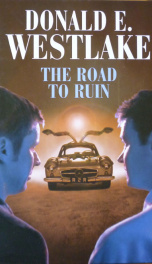
The Road To Ruin
Series:
Unknown
Year:
Unknown
Raiting:
3/5
John Dortmunder as a butler? Well, he’s not really a butler; he’s just playing one at the heavily guarded estate of crooked tycoon Monroe Hall. A corporate pariah surrounded by loot, including a fleet of priceless vintage cars, Hall soon finds his needs—from driving to cooking—eagerly fulfilled by Dortmunder and his gang. Dortmunder’s plan: to change in one fell swoop from loyal servants to merry robbers, and drive off with ill-gotten plunder. There’s just one problem. Monroe Hall has as many enemies as antiques. Before Dortmunder can go from serving to stealing, Hall disappears and the cops are knocking on the door. And after a violent crime is committed, Dortmunder is in the worst place possible. For as everyone knows, whenever there’s mischief in a mansion … the butler always did it!
Show more
add to favoritesadd In favorites
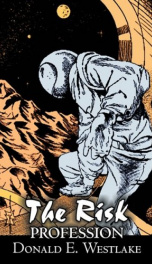
The Risk Profession
Series:
Unknown
Year:
Unknown
Raiting:
2.5/5
A fantastical detective novella by Donald Edwin Westlake, an American writer of the 20th and early 21st centuries, whose body of works encounters over a hundred novels and non-fiction books. “The Risk profession”, also known as “Murder in Outer Space” follows the investigation of a space prospector’s death on an asteroid. The action takes place in far future, when the hero ferrets out the truth behind suspicious insurance claims.
Show more
add to favoritesadd In favorites
Book list

The Road To Ruin
Series:
Unknown
Year:
Unknown
Raiting:
3/5
John Dortmunder as a butler? Well, he’s not really a butler; he’s just playing one at the heavily guarded estate of crooked tycoon Monroe Hall. A corporate pariah surrounded by loot, including a fleet of priceless vintage cars, Hall soon finds his needs—from driving to cooking—eagerly fulfilled by Dortmunder and his gang. Dortmunder’s plan: to change in one fell swoop from loyal servants to merry robbers, and drive off with ill-gotten plunder. There’s just one problem. Monroe Hall has as many enemies as antiques. Before Dortmunder can go from serving to stealing, Hall disappears and the cops are knocking on the door. And after a violent crime is committed, Dortmunder is in the worst place possible. For as everyone knows, whenever there’s mischief in a mansion … the butler always did it!
Show more
add to favoritesadd In favorites

The Risk Profession
Series:
Unknown
Year:
Unknown
Raiting:
2.5/5
A fantastical detective novella by Donald Edwin Westlake, an American writer of the 20th and early 21st centuries, whose body of works encounters over a hundred novels and non-fiction books. “The Risk profession”, also known as “Murder in Outer Space” follows the investigation of a space prospector’s death on an asteroid. The action takes place in far future, when the hero ferrets out the truth behind suspicious insurance claims.
Show more
add to favoritesadd In favorites
What readers are saying
What do you think? Write your own comment on this author!
write a commentif you like Westlake Donald E. try:
readers also enjoyed
Info about the author
Name:
Westlake Donald E.
Born:
Influences:
none
Avg raiting:
2.56/5 (45)
Books:
What readers are saying
What do you think? Write your own comment on this author!
write a commentif you like Westlake Donald E. try:
readers also enjoyed
Do you want to exchange books? It’s EASY!
Get registered and find other users who want to give their favourite books to good hands!

